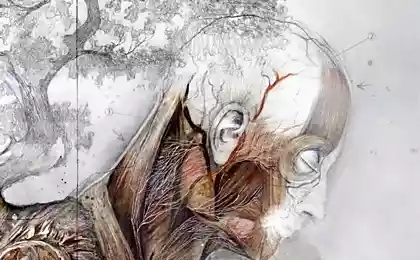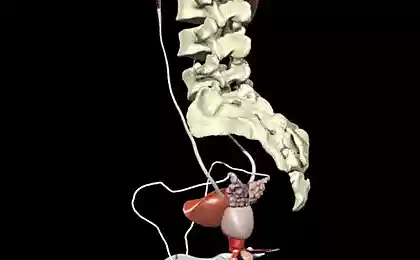130
How to recognize and overcome a panic attack
A panic attack is a sudden attack of fear and anxiety for which there is no obvious reason.
Panic can last from a few minutes to half an hour and is accompanied by a number of somatic symptoms: rapid heartbeat, chills or increased sweating, dizziness, feeling lack of air, numbness of the hands or feet, tremors, painful sensations anywhere in the body.

DepositPhotos
This ailment can develop in several categories of people. First: genetically predisposed people who have or have had relatives with panic disorder.
The second: people who are dominated by external adverse factors. For example, those who have had a difficult childhood, experienced violence or are constantly under stress due to professional activities. The third category of people: those who have mechanical head injuries.

Recurrent attacks of severe anxiety and panic in patients are not limited to any special situation or set of circumstances. Seizures are unpredictable and these people need treatment.
Usually, a specialist uses cognitive behavioral therapy, sometimes in combination with drug treatment, after which the disease disappears.
It is also a good idea to make efforts on your own to make attacks more rare and learn how to cope with their consequences while the doctor finds out. causes of panic attacks.

DepositPhotos
How to Deal with Panic
From the outside, it seems that Panic attacks without cause. But in fact it is, deep, psychological or psychic. It is best to work with a psychiatrist.
Also useful tips for those who are looking for ways to deal with stress, read our article. Follow the link.
Panic can last from a few minutes to half an hour and is accompanied by a number of somatic symptoms: rapid heartbeat, chills or increased sweating, dizziness, feeling lack of air, numbness of the hands or feet, tremors, painful sensations anywhere in the body.

DepositPhotos
This ailment can develop in several categories of people. First: genetically predisposed people who have or have had relatives with panic disorder.
The second: people who are dominated by external adverse factors. For example, those who have had a difficult childhood, experienced violence or are constantly under stress due to professional activities. The third category of people: those who have mechanical head injuries.

Recurrent attacks of severe anxiety and panic in patients are not limited to any special situation or set of circumstances. Seizures are unpredictable and these people need treatment.
Usually, a specialist uses cognitive behavioral therapy, sometimes in combination with drug treatment, after which the disease disappears.
It is also a good idea to make efforts on your own to make attacks more rare and learn how to cope with their consequences while the doctor finds out. causes of panic attacks.

DepositPhotos
How to Deal with Panic
- Auto-training
The easiest and most common way to relieve yourself of anxiety. Autotherapy is aimed at self-regulation of consciousness and internal state. You need to relax and write on a piece of paper, “I don’t panic anymore.” I'm calm. I will be fine, everything will be fine! The paper should be carried with you, during an anxiety attack take out of your pocket. Memories of the state of calm in which the note was written will occur automatically. Emotional memory will work.
DepositPhotos - Day regime
This is a preventive measure that will both heal physically and relieve anxiety. When a person knows that he is living on a schedule and life is going according to plan, he has nothing to worry about. Organize an 8-hour sleep, add more vegetables and fruits to the diet, exclude coffee and alcoholic beverages, eat fractionally and at the same hours of the day, exercise in the morning or evening.
Moderate exercise, such as running, provokes the release of endorphins, which entails a decrease in the level of the stress hormone cortisol.
DepositPhotos - Breathing exercises
This is the main way to deal with unreasonable feelings of panic. Take a few deep breaths and exhales, cover your eyes and mentally withdraw from the current situation. Your brain will be oxygenated and you will feel better. Use not the usual, but diaphragmatic breathing. Using the diaphragm, not the chest, take a breath, counting to 5. When you gain maximum air, hold your breath for 2 seconds. Then breathe out slowly, counting to 5.
The fact that you breathe the diaphragm will be evidenced by raising and lowering the stomach. You can put your hand on him to better control the process. Focusing on breathing will normalize your heart rhythm. Learn more about how to breathe the diaphragm, read here.
DepositPhotos - Aromatherapy
If you feel that another attack is approaching, put a mint candy under your tongue. Or drops on your wrist of some rosemary essential oil, sandalwood or ylang-ylang on a headscarf. All these smells are soothing.
DepositPhotos
From the outside, it seems that Panic attacks without cause. But in fact it is, deep, psychological or psychic. It is best to work with a psychiatrist.
Also useful tips for those who are looking for ways to deal with stress, read our article. Follow the link.




























